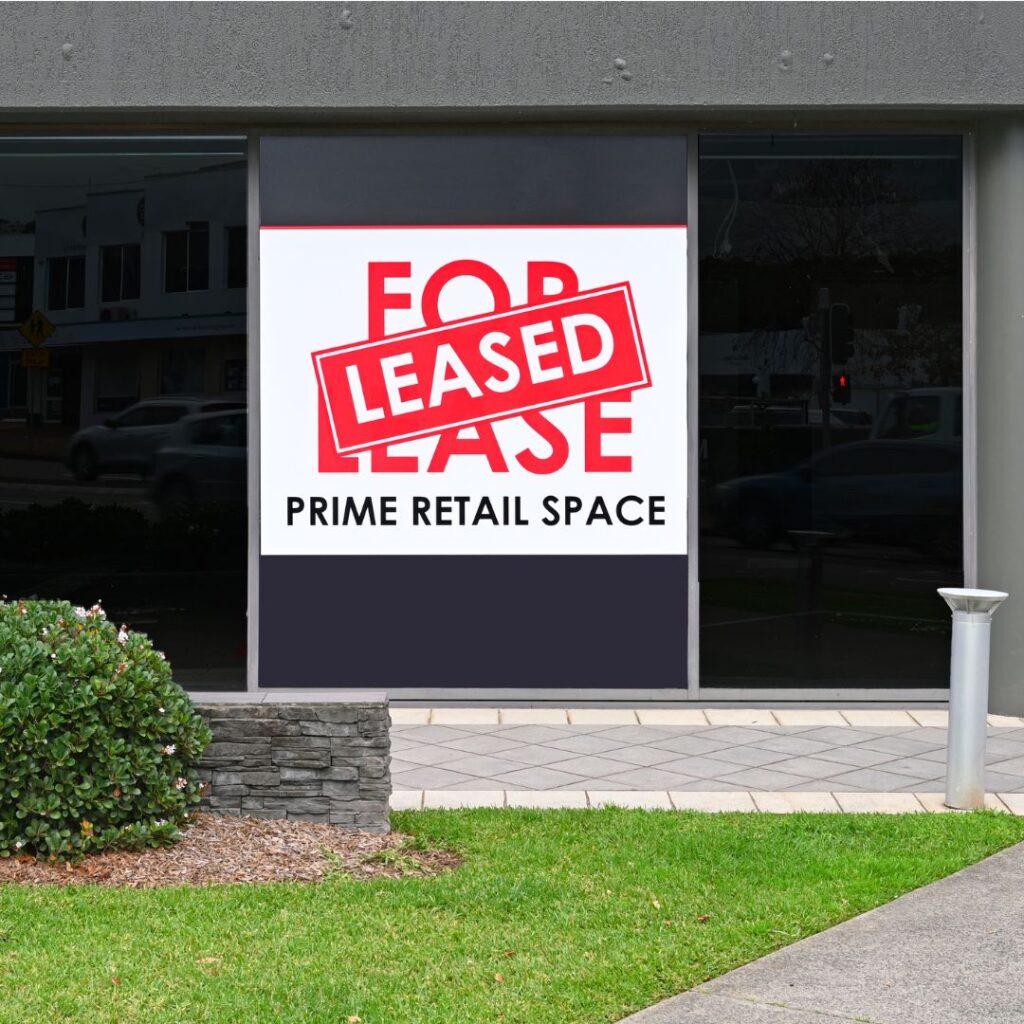- Home
- Commercial Broker Services
- Business Broker Services
- Business Owners Resources
- Negotiating Your First Retail Lease: What Most Brokers Won’t Tell You
Negotiating Your First Retail Lease: What Most Brokers Won't Tell You
Signing your first retail lease is a milestone in any entrepreneur’s journey, but it’s also a complex process filled with potential pitfalls that many brokers conveniently overlook. While brokers play an essential role in the commercial real estate market, their primary goal is to close deals. This means there are crucial aspects of lease negotiations that you need to understand to protect your business interests.
The True Cost of Your Lease
When brokers quote rental rates, they typically focus on the base rent, but this is just the tip of the iceberg. Operating expenses, commonly known as “triple net” or “NNN” charges, can significantly increase your monthly obligations. These expenses include property taxes, insurance, and maintenance costs, which can add 30-50% to your base rent. Even more concerning, many landlords include “gross-up” provisions that allow them to charge you as if the building were fully occupied, even when it’s not.
Furthermore, most brokers won’t emphasize the importance of understanding your rent escalations. While annual increases of 2-3% might seem reasonable, compound interest can make these escalations substantial over a five or ten-year lease term. Always calculate the total cost over the entire lease period, including estimated operating expense increases, before committing.
Hidden Lease Clauses That Can Hurt Your Business
Brokers rarely dive deep into lease clauses that could significantly impact your business operations. For instance, the “relocation clause” gives landlords the right to move your business to a different space within the property. While they typically cover moving expenses, the disruption to your business and potential loss of customers isn’t compensated. Consider negotiating the removal of this clause or adding specific conditions that protect your interests.
Another overlooked aspect is the “co-tenancy clause.” If your business relies on anchor tenants drawing foot traffic, you need protection if these major retailers leave. Negotiate reduced rent or early termination rights if key tenants vacate the property or if occupancy falls below a certain threshold.
Negotiating Leverage Points
What many brokers won’t tell you is that everything in a commercial lease is negotiable, including seemingly standard provisions. The security deposit, for instance, can often be reduced or structured as a declining amount over time based on your payment history. Personal guarantees, while common for first-time tenants, can be limited in duration or amount.
Additionally, tenant improvement allowances (TI) are more flexible than brokers might suggest. Instead of accepting the standard allowance, consider negotiating for specific improvements that benefit your business. Sometimes, landlords are willing to amortize additional improvements over the lease term rather than requiring upfront payment.
Future-Proofing Your Lease
Most brokers focus on getting you into the space but pay less attention to how you might need to get out. Exit strategies are crucial, especially for new businesses. Negotiate termination rights with reasonable penalties, and ensure your lease includes assignability and subletting rights with minimal landlord restrictions.
Consider including expansion rights if adjacent spaces become available, and negotiate first right of refusal on these spaces. Similarly, renewal options should be clearly defined with specific terms for rent increases, rather than leaving them to “market rate” determinations.
The Power of Professional Support
While brokers suggest they can handle everything, having your own real estate attorney review the lease is invaluable. They can identify problematic clauses and suggest modifications that protect your interests. The cost of legal review is minimal compared to the potential expenses of unfavorable lease terms over several years.
Additionally, consider hiring a certified public accountant to review the lease’s financial implications, including tax consequences and proper expense categorization. They can also help you understand how different lease structures might impact your business’s financial statements.
Timing and Market Knowledge
Brokers might not emphasize that timing can significantly impact your negotiating power. Many landlords become more flexible near the end of their fiscal year or when they have multiple vacancies. Understanding market conditions, vacancy rates, and recent lease comparables in your area can provide valuable negotiating leverage.
Creating Competition
One effective strategy that brokers might not suggest is creating competition for your tenancy. Negotiating with multiple landlords simultaneously can help you secure better terms. Be transparent about considering other properties, but maintain professionalism and avoid using this as a bluff.
Documentation and Due Diligence
Always document important conversations and promises made during negotiations. Verbal agreements with landlords or brokers are worthless unless included in the lease. Request and review the property’s maintenance records, tax assessments, and operating expense history. Understanding these aspects can help you negotiate caps on expense increases and identify potential issues before signing.
Conclusion
Negotiating your first retail lease is a complex process that requires careful attention to detail and understanding of long-term implications. While brokers provide valuable services, remember that their interests might not always align perfectly with yours. Take time to understand all aspects of your lease, seek professional advice when needed, and don’t hesitate to negotiate terms that protect your business interests. The effort you put into lease negotiations can significantly impact your business’s success and profitability for years to come.



